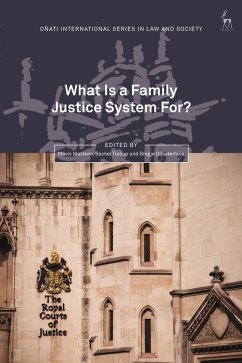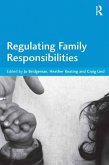Does a justice system have a welfare function? If so, where does the boundary lie between justice and welfare, and where can the necessary resources and expertise be found?
In a time of austerity, medical emergency, and limited public funding, this book explores the role of the family justice system and asks whether it has a function beyond decision-making in dispute resolution. Might a family justice system even help to prevent or minimise conflict as well as resolving dispute when it arises?
The book is divided into 4 parts, with contributions from 22 legal scholars working across Europe, Australia, Argentina and Canada.
- Part 1 looks at what constitutes a family justice system in different jurisdictions, and how a welfare element is included in the legal framework.
- Part 2 looks at those engaged with a family justice system as professionals and users, and explores how far private ordering is encouraged in different countries.
- Part 3 looks at new ways of working within a family justice system and raises the question of whether the move towards privatisation derives from the intrinsic value of individual autonomy and acceptance of responsibility in family disputes, or whether it is also a response to the increasing burden on the state of providing a welfare-minded family justice system.
- Part 4 explores recent major changes of direction for the family justice systems of Australia, Argentina, Turkey, Spain, and Germany.
In a time of austerity, medical emergency, and limited public funding, this book explores the role of the family justice system and asks whether it has a function beyond decision-making in dispute resolution. Might a family justice system even help to prevent or minimise conflict as well as resolving dispute when it arises?
The book is divided into 4 parts, with contributions from 22 legal scholars working across Europe, Australia, Argentina and Canada.
- Part 1 looks at what constitutes a family justice system in different jurisdictions, and how a welfare element is included in the legal framework.
- Part 2 looks at those engaged with a family justice system as professionals and users, and explores how far private ordering is encouraged in different countries.
- Part 3 looks at new ways of working within a family justice system and raises the question of whether the move towards privatisation derives from the intrinsic value of individual autonomy and acceptance of responsibility in family disputes, or whether it is also a response to the increasing burden on the state of providing a welfare-minded family justice system.
- Part 4 explores recent major changes of direction for the family justice systems of Australia, Argentina, Turkey, Spain, and Germany.









